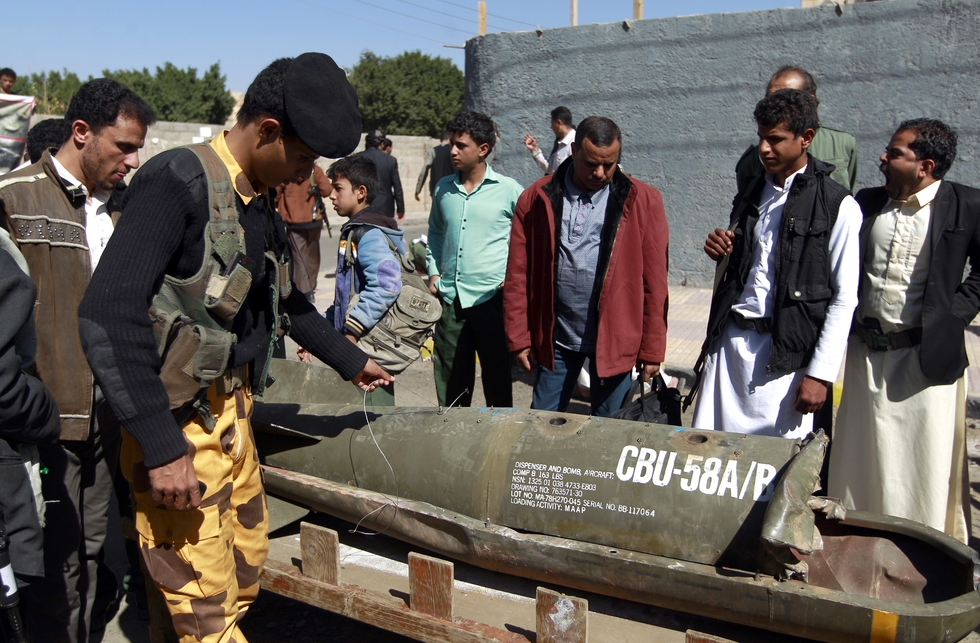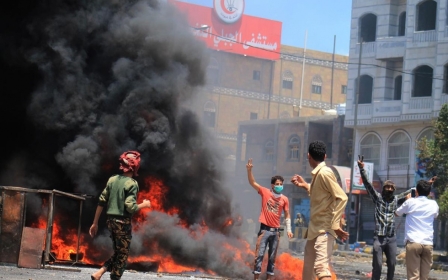Saudi Arabia asks UN to move aid workers in Yemen away from rebel-held areas

Saudi Arabia has asked the United Nations to move aid workers away from rebel-held areas in Yemen as the Riyadh-led coalition presses on with air strikes against the Houthis and their allies, according to a letter seen by AFP on Thursday.
The UN flatly rejected the request and reminded Saudi Arabia of its obligations to allow humanitarian access in Yemen, where coalition warplanes have been pounding Shia Houthi rebels for nearly a year.
UN aid chief Stephen O'Brien said in a letter to Saudi Ambassador Abdallah Al-Mouallimi that relief organisations were "delivering life-saving assistance as per internationally recognised principles and will continue to do so."
Responding to O'Brien, the ambassador renewed the coalition's request that "humanitarian and relief organisations relocate from areas close to bases for military operations by Houthis and supporters' of ex-president Ali Abdullah Saleh.
"The coalition's request is consistent with its obligations under international humanitarian law, and, in no way, can be misinterpreted to indicate any hindrance to humanitarian access and the delivery of humanitarian assistance in Yemen," wrote Mouallimi on Monday.
The Red Cross also said on Friday it had turned down a call from Riyadh for aid workers to stay out of rebel-held zones.
The mission of the International Committee of the Red Cross "often necessitates crossing frontlines" and securing access to combat zones, the ICRC's Sanaa spokeswoman Rima Kamal told AFP.
"To reach all those in need in Yemen ... we will continue to seek security guarantees from all parties and in all regions," she said.
"We have no plans to change that for the time being, and we remain committed to operate in all regions and to do everything possible to reach the civilians affected."
The UN has had several disputes with Saudi Arabia over aid access in Yemen, where 80 percent of the population is facing dire food shortages.
Back in October, the Saudi-led coalition bombed a hospital run by Doctors Without Borders (MSF).
MSF country director Hassan Boucenine said that the maternity staff had "just had time to run off as another missile hit the maternity ward".
"This attack is another illustration of a complete disregard for civilians in Yemen, where bombings have become a daily routine," said Boucenine.
"Markets, schools, roads, bridges, trucks transporting food, displaced persons camps and health structures have been bombed and destroyed. And the first victims are civilians."
The facility was the only life-saving medical centre in the region and had a catchment area of 200,000 people. MSF said that they used to treat around 200 people wounded by the war every week.
O'Brien told Saudi Arabia that aid workers would continue to inform coalition authorities of their movements.
UN and international aid workers have passed on their coordinates to coalition military authorities to ensure they are not inadvertently targeted.
The Saudi-led coalition is backing Yemen's government in its war against Houthi rebels who overran the capital Sanaa in September 2014.
Pro-government forces advanced to within 40 kms of Sanaa in a push towards the rebel-held capital from the northeast, loyalist military sources said on Friday.
Loyalist forces took the town of Nihm after overrunning the headquarters of the renegade pro-rebel 312th Brigade of the army earlier this week, the sources said.
The advance puts them within striking distance of the heights overlooking Sanaa international airport, where residents said the rebels were digging trenches and laying minefields.
More than 6,100 people have been killed in the conflict since March, about half of them civilians, according to UN estimates.
Stay informed with MEE's newsletters
Sign up to get the latest alerts, insights and analysis, starting with Turkey Unpacked
Middle East Eye delivers independent and unrivalled coverage and analysis of the Middle East, North Africa and beyond. To learn more about republishing this content and the associated fees, please fill out this form. More about MEE can be found here.




